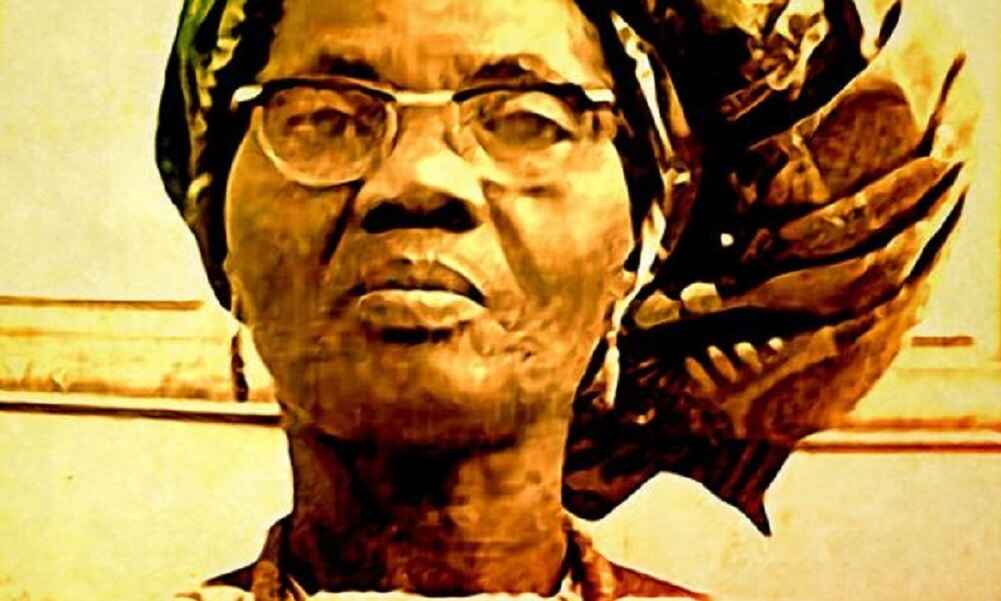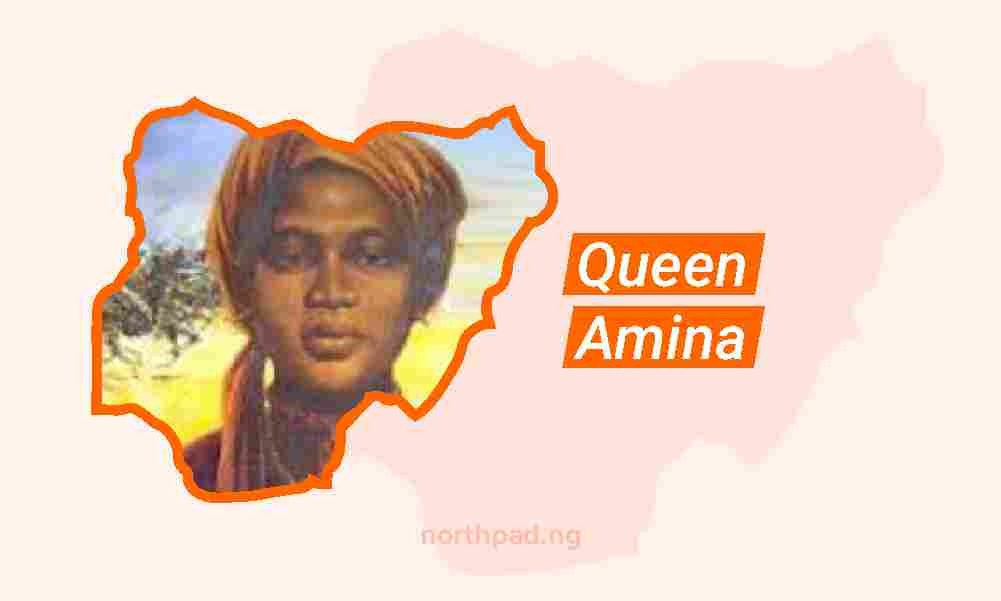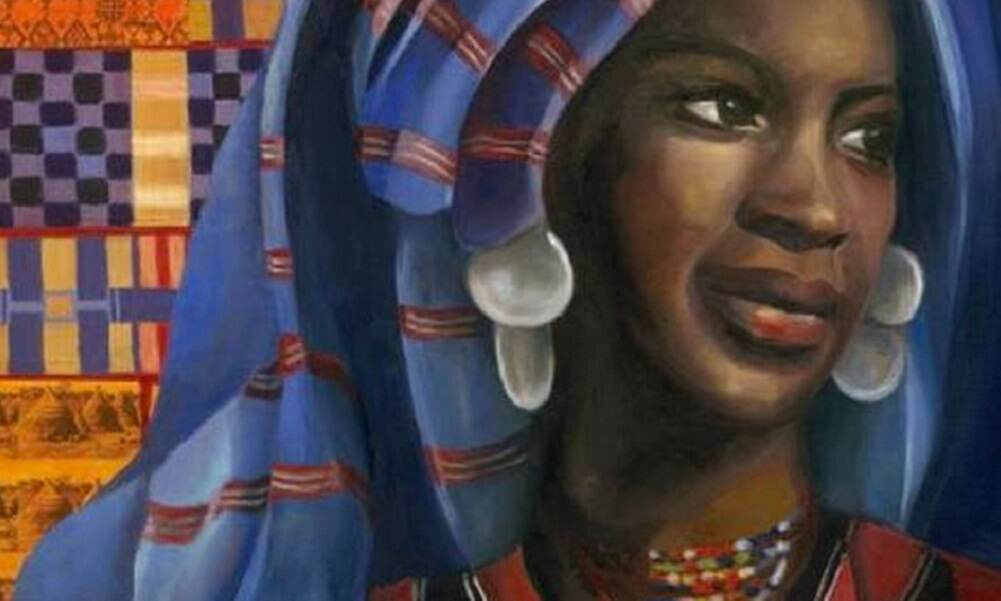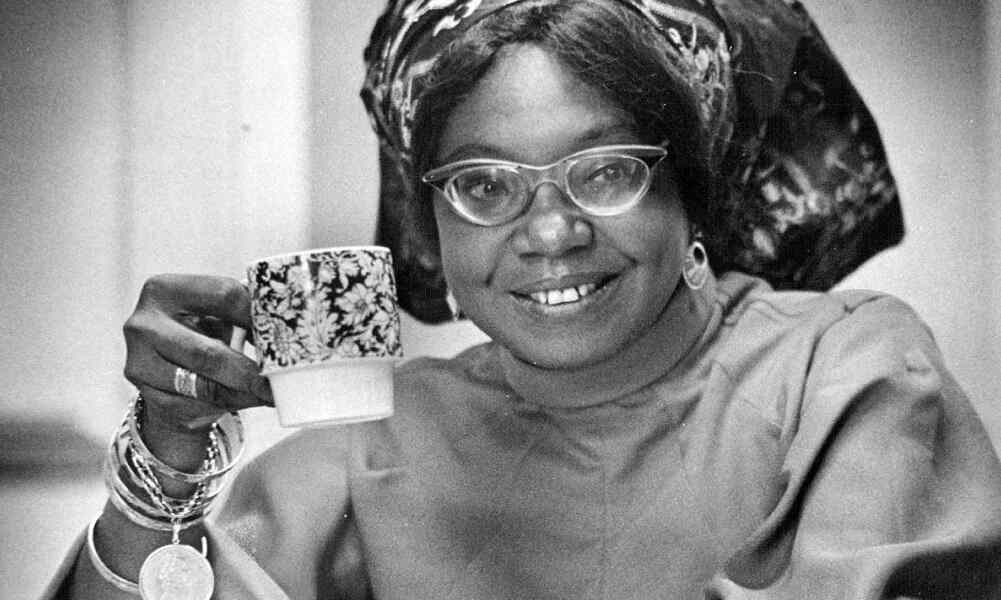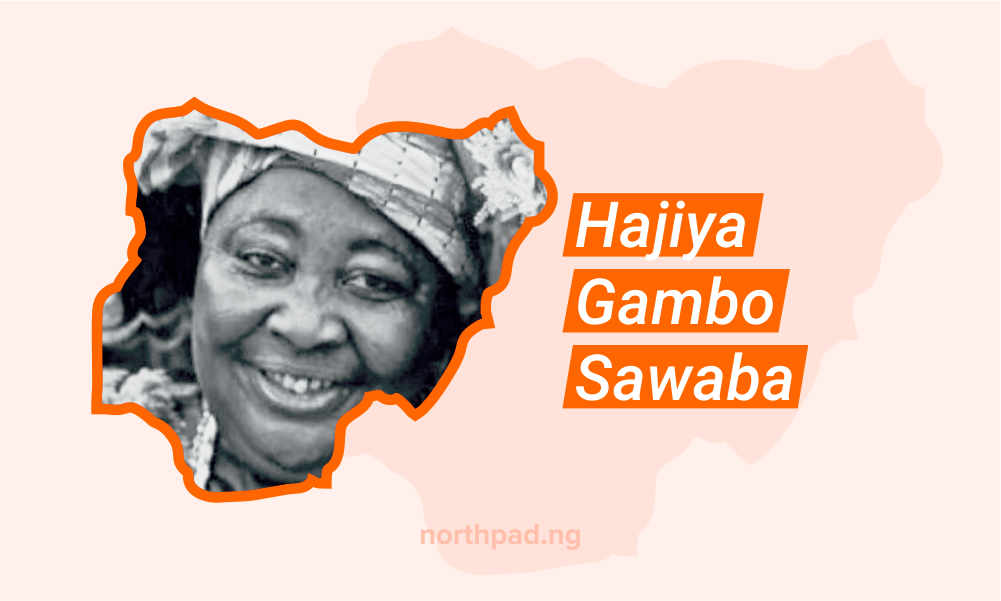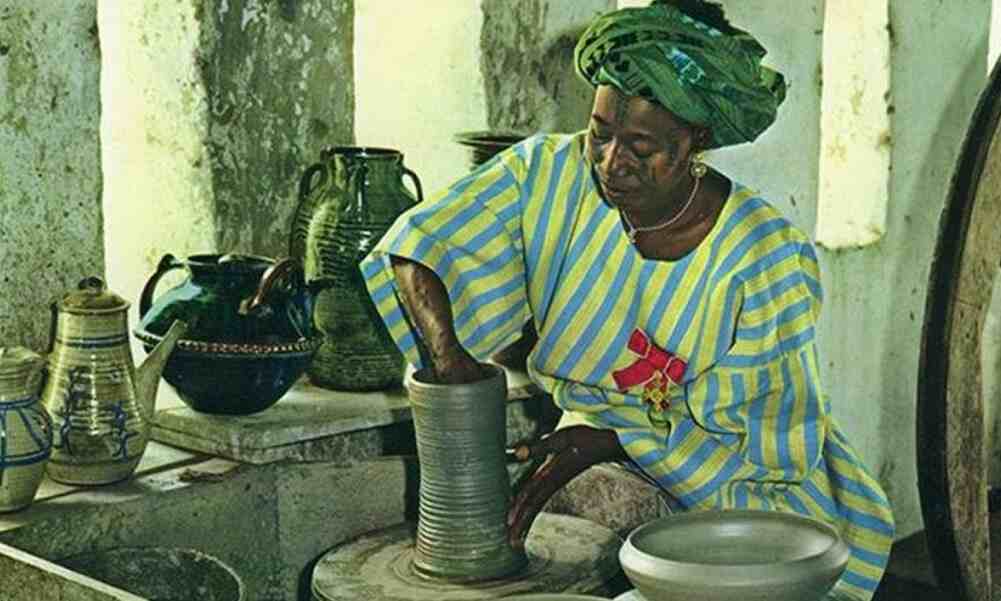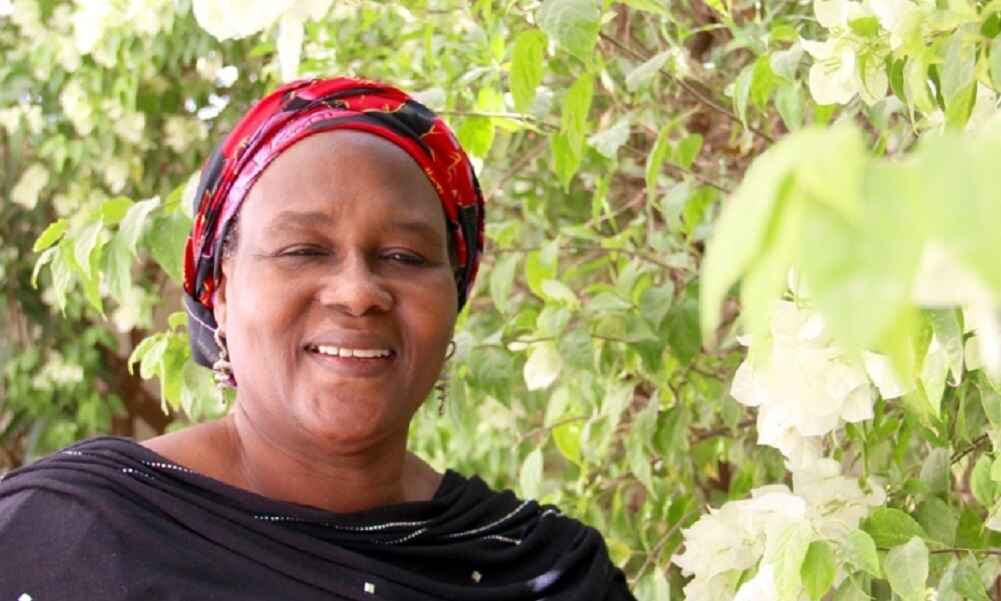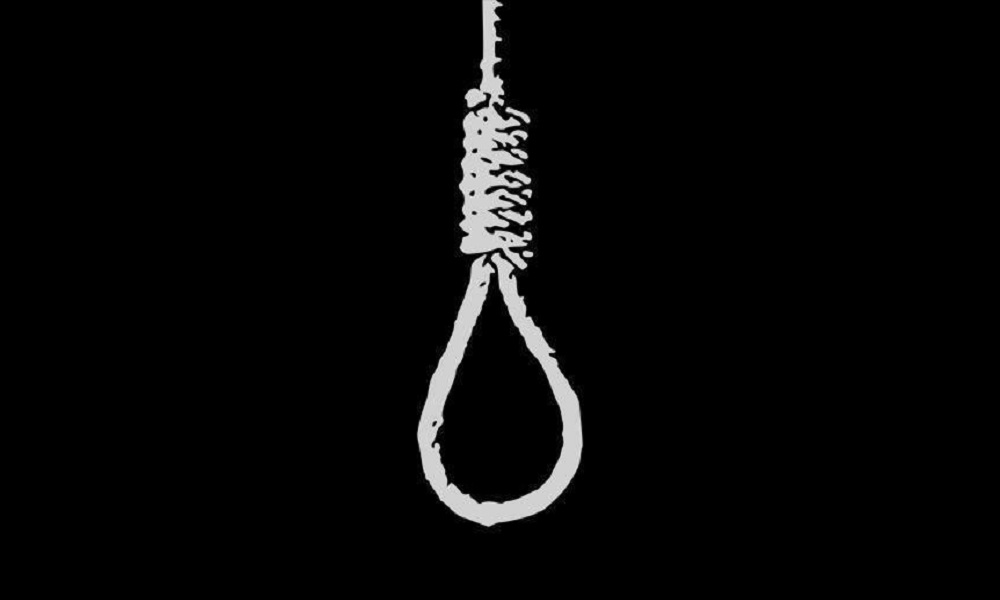
by Aisha | Jan 26, 2022 | Uncategorized
Suicide is the intentional killing of oneself. In Nigeria, the suicide rates are about 17.3 per 100,000 people. This might seem like a small number until we consider that it is not just a number but people with lives, futures, and families. This number is distributed throughout all the states in Nigeria. Even in Northern Nigeria where it is taboo to commit suicide, it is still rampant. It leads one to wonder what exactly would cause a person to take their own life. The reasons vary from person to person but some of them are:
Reasons for Increase in Suicidal Rate in Northern Nigeria
1. Grief
After the death of a family member, living may become difficult. Death may lead to sadness, depression, etc. all of which could make a person choose “the easy way out” and give up on life itself. This is surely one of the reasons why suicide in Northern Nigeria is on the rise.
2. Financial Problems
It is no news that the standard of living in Nigeria is low. A lot of families struggle to put food on the table even once a day. In Northern Nigeria especially, where the men are the head of large families and the women do not work, it is even harder to feed. If a man loses his job in this situation, needless to say, his frustration will know no bounds. He is likely to end it all as the responsibility may be too much for him. His death could lead to the deaths of other members of his family as they are left destitute.
3. Rejection
This is common amongst teenagers. Although liking someone is not a crime and is a natural phenomenon, some individuals take it as far as to put their lives in another person’s hands. When this other person then rejects their affection, they are left sad and unable to function and might think the next best thing is to kill themselves.
4. Unemployment
This is another big problem in Nigeria and a cause of suicide in Northern Nigeria. The country is not stable enough to provide jobs for everybody yet our educational systems are such that we are not taught to be entrepreneurs. This leads people to look for jobs that are not available and the frustration may lead to suicide. In Northern Nigeria, there is also the problem of under qualification. Sometimes, there are jobs available but the people who apply for them are not qualified enough.
This is especially true in the north due to the fact that they do not generally value western education like most other regions. This inability to secure a job is detrimental to the mental health of the job seeker.
5. Abuse
There are several types of abuse and abuse has been seen to be a leading cause of suicide:
a. Sexual Abuse
When a person is raped, especially in the north, they tend to keep quiet about it. This is usually because when they do speak up, they are blamed for the abuse, and then their image is ruined and they can no longer walk confidently among the crowd. When a person is abused and they keep quiet about it, they die slowly inside until they can no longer go on. And when they talk about it, they are ridiculed so much that their only options seem to be either to relocate or to commit suicide.
b. Domestic Abuse
In Northern Nigeria, there are many cases of domestic abuse, reported and not reported. Domestic abuse can be about a person beating their significant other. Men are usually reported to have beaten their wives or maltreated them in one way or another. As a woman in Northern Nigeria, it is seen as a shame to report your husband or even be divorced. This leads women to stay in a depressing marriage and could eventually cost them their lives.
Read: Divorced Women in Arewa Are Really Suffering, And We Can Do Something About it
c. Emotional Abuse
Words have the potential for great good as well as a great evil. In Nigeria as a whole, people are fond of insulting each other as a joke and putting down another person’s self-esteem. It might be funny for a while, but some people may be emotionally fragile and after getting so many harsh words, they deem themselves unworthy and try to end their own life.
d. Child Abuse
Giving a child out as a maid, beating a child mercilessly, starving them, forcing them to beg, not giving them an education, etc. are all a part of child abuse. Children should be nurtured with care so their self-esteem does not dip. A child with low esteem is bound to want to kill himself. A child who sees his mate going to school while he is stuck begging will feel unworthy and sad.
Furthermore, children (both male and female) who are forced into early marriages without even knowing what it entails could end up very sad and want to end it. We should take care to not abuse our children and keep their futures safe. Else, suicide might start to look like heaven to them.
6. Health Issues
In addition, another cause of suicide in Northern Nigeria is the health status of victims. Some people who have health complications choose to kill themselves either because they do not have the financial capacity to handle the disease and do not want to bother their families, or that the disease could ultimately lead to death anyway. They choose to do what they believe is best and commit suicide. Due to this, health practitioners often advise people with severe health conditions to see psychologists. But as we all know, this is Nigeria.
There are several other factors that could cause a person to want to commit suicide. They include bullying and discrimination, cultural/religious pressure, etc. But with every problem, comes solutions. The weight of reducing the load on suicidal persons rests on the shoulders of individuals, the community, and the government. How?
How Suicidal Rates Can Be Reduced in Northern Nigeria
1. What Individuals Could Do
People should try to be more tolerant of others. We should all remember that every person in this world has their own struggles and as such, we should be kinder. I was once asked in a Buzzfeed quiz about what attribute would make the world a better place. The options were; Discipline, Self-Love, Independence, and Kindness. While all of these are good, in the wise words of Jackie Chan, sometimes it only takes one act of kindness and caring to change a person’s life.
We should also try to take note of the people around us. That lady upstairs who always gave you salt when you ran out, ask about how she’s doing you might be surprised about the pain she’s in despite her smile. That man who always greets you on his way to work but suddenly stops and just walks around with a long face, have a chat with him. It might save his life. These simple acts can lead a person from intentionally walking the plank.
2. How Society Can Help
Society in general also has a role to play in the fight against suicide. As mentioned above bullying and discrimination is one of the major causes of suicide. Let’s take the instance of 26-year-old Geraldine whose story was narrated to me by a friend of mine. Geraldine was a hairdresser at a famous salon. She was strong, happy, independent, and kind and had many friends. One day, people realized she started to grow thin and began to wonder. One thing led to another and it was discovered that she had been living with HIV for a while. She had run out of money so could not feed herself properly which caused people to notice it.
Society had two options here. One, be sorry for not noticing the pain she had been going through and try to see how to help her. Second, ignore and stigmatize her due to her illness. In the society we live in today, the second option prevailed and she was fired. She had no friends and no source of income. Due to this, her frustration grew and she tried to commit suicide. Although she was saved, her life can never be the same again.
Let us imagine a scenario where the second option was chosen. Geraldine would have been saved, she would still have her friends and the world would still have a bright young woman. The impact of societal care on suicide prevention cannot be over-emphasized.
3. What Role the Government Can Play
Although the government tries, there is still a lot it can do. For instance, set up more emergency helplines for suicide attempters, set up free (and effective) counselling sessions, organise rallies and orientation programmes to educate people on the dangers of suicide, etc. In Nigeria, there is a law that says an attempt of suicide is liable to a year of imprisonment. I find this ridiculous. Instead, mental health organizations should be set up for them so as to revive their will.
The government definitely has a huge role to play in reducing suicide in Northern Nigeria.
4. How Non-Governmental Organizations Can Help
There are other people that help in the fight against this social vice. These people have come together to create NGOs that help with suicide prevention. The government has also set up certain helplines to combat the situation. A lot of helplines for different suicidal scenarios and other emergencies can be found at www.opencounsseling.com and www.aasra.info. If you or anyone around you needs help, please click any of the links above.
Do NOT suffer in silence. Anyone considering suicide should remember “You matter. What you do matters. Who you are matters” and click on the link and give it another shot.
Conclusion
The above-mentioned are reasons why the suicide rate is increasing in Northern Nigeria and what role individuals, government, the society and non-governmental organizations have to play in curbing it. Remember, suicide is a blot on our society and it is our responsibility to clean it. Out of the over 700,000 people that die if we all save one, I dare say that number can be cut down significantly.
If you have further questions, let’s hear them in the comments and I would love to get your opinion on the above Buzzfeed question.
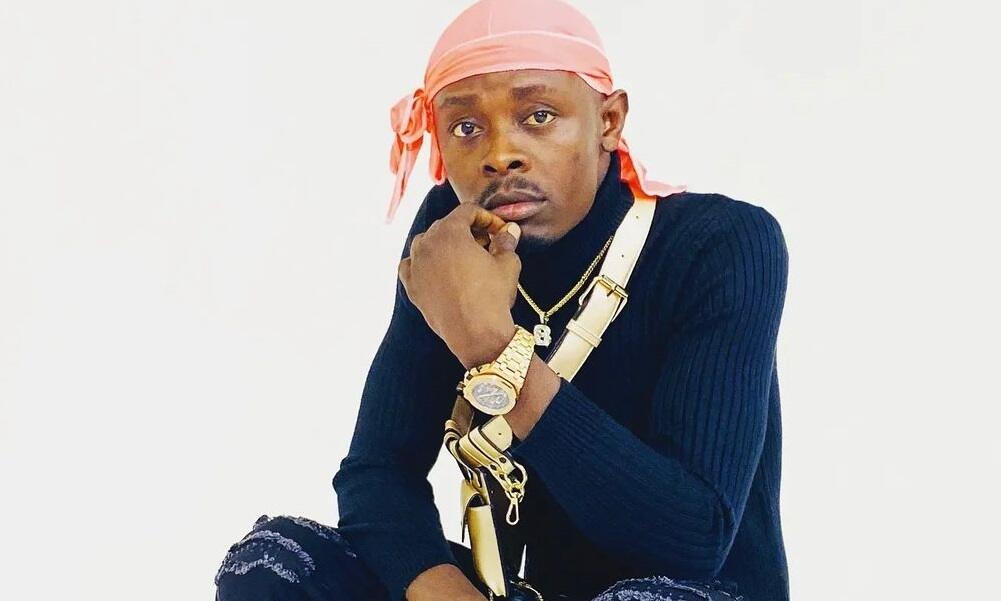
by Aisha | Jan 11, 2022 | Music
The northern Nigerian music industry is on another level when it comes to the music industry. It is not as popular as Nigerian music but it has a very loyal fanbase with thousands of listeners. The success of these songs can be said to be due to the very talented music artists behind them. In this list, we’ll look at the top 10 music artists from Northern Nigeria in 2021. For this purpose, we start counting albums released from the 1st of January till the 31st of December.
Let’s go.
Top 10 Music Artists from Northern Nigeria in 2021
10. Ali Jita
Ali Isah Jibrin or as he is popularly known, Ali Jita released hit songs like Mai Waka, Amarsu, and Na Janje this year. Though he is a very popular name, he hasn’t really been active in 2021 as in previous years, hence his ranking as the 10th.
9. Lilin Baba
Shu’aibu Ahmad Baba, professionally known as Lilin Baba is one of the top 10 music artists from Northern Nigeria in 2021. He released 2 albums that year. Rigar So and Sounds from the North. Both albums did extensively well and the songs were a blast. In one of the songs from Sound of the north titled “Tsaya”, he featured acclaimed artists Umar M. Shereef and Rahma Sadau. It is no wonder that he made the list. In total, the artist has over 15 songs in 2021, all listened to in the streets.
8. Adam A. Zango
Although he sang a few sings like So Da Alkawari and Munyi Kama this year, he made the list by being featured on Umar Mb’s song Fatima Zara. This song was a hit and we all know it.
Related: 6 Kannywood Actors who Died in 2021
The actor turned musician also released Tuntube, a song from his TV series Farin wata sha kallo.
7. Mr442
Mubarak Abdulkareem, Mr442, was brought up in Zaria Nigeria. He has sung a few hits and this year, he made several massive hits. One of his popular songs this year was Soro Seke. Although it was released in 2020, following the ongoing trend at the time, the music video was released in 2021 which led to its making the list. He also released Yinshine where he featured Mohbad and they earned the title of ‘Arewa Marlian.’
His other songs this year include, Shagali, Daka, and mace which is an instant hit on Arewa Tiktok etc. The artist has 10 releases this year
6. Nura M. Inuwa
A popular Arewa musician, Nura, also called M. Inuwa who also made it to our top 10 music artists from northern Nigeria in 2021 released three albums this year. Lokaci and Ni Da Ku and Tamburan Sarkin Bichi in honour of the new Emir of Bichi, Nasiru Ado Bayero.
Both were a success with reigning songs like Ya Farin Gida, Bankwana, Muji Tsoron Allah, Zaren Zuciya, and many more. 2021 was a very busy year for this artist.
5. Hamisu Breaker
Being featured is one thing and making smashing success on your own is another. Hamisu Breaker, born Hamisu Sa’id Yusuf is one of the most popular names in the music industry. He is young and good-looking. This year, he took it slow and released a few singles unlike in 2020.
Despite that, he has a hit song in the form of Sai Dake and an album, Alkhairi. Even without much effort, his talent was enough to make the song successful.
4. Umar Shareef
No one can deny that Umar M Shareef is a king when it comes to Kannywood music and no one can deny that he earned his spot a number one. He released his song Fanan this year which was a huge success and also made music videos for his songs Kina Nesa and Ban Miki Laifi Ba.
His other song this year was Ta Kamani which many know and love. With his talent and reputation, it is not surprising that he made this list.
3. Nazir Sarkin Waka
Nazir M. Ahmad or Nazir Ahmad Sarkin Waka or whatever way you choose to state the name is a very popular music artist. He needs no introduction and neither does his Labarina album which blew minds. It had many songs which have graced the ears of many of us.
Some of those songs are, Labarina Dawo Dawo, Labarina Dena Kuka, Na Kulle da Mukulli, and many more. This artist is good and he knows it.
2. DJ AB
Our very own DJ AB or DJ Abba whose name is Haruna Abdullahi is a household name. He has been on the top list for a while and this year is no different with his release of the album SUPA on the 1st of November 2021. His songs were a massive success and were played in several places after their release.
His E.P Supa featured popular Nigerian musician Mr Eazi and his smash hit Lukuti was in the mouths of almost everyone. He also featured on other songs, such as the Hausa remix to Joeboy’s popular song, Nobody.
1. Namenj
Namenj, whose real name is Ali Jubril Namanjo was the top artist in 2021. He released his album North Star on the 10th of November 2021, which proved he is indeed a Northstar. He also released several singles. In his song Dama, he featured Hamisu Breaker who is not a new name in the Kannywood music industry. He also featured Joeboy, a reigning Nigerian musician in another song titled, tired.
As a breakout star in 2021, Namenj is number 1 on the list of top 10 music artists from northern Nigeria.
Conclusion
The above-mentioned artists obviously made the top 10 list of music artists from Northern Nigeria in 2021. The top picks were determined by the popularity of musicians, the success of albums and songs, and the general view of the target demographic.
Don’t agree with the picks? Let me know in the comments.
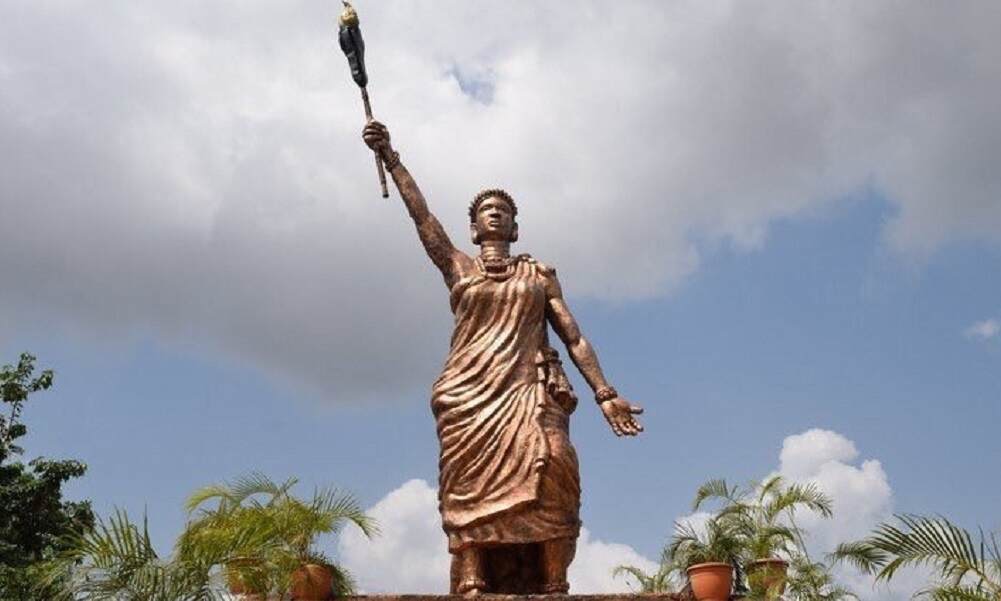
by Aisha | Jan 6, 2022 | Archives
In the history of our great nation, many men and humans have dedicated their lives and sacrificed a lot to see the county grow into the nation we have today. Some died for the cause, many lived for the cause and many more passed it unto their children. The female heroes in particular have fought a hard battle, having to fight both against foreign and domestic oppression. The lives and achievements of some of these women are outlined below.
Top Female Heroes in Nigeria
1. Funmilayo Ransome-Kuti
Chief Funmilayo was an educator, a political campaigner, a human rights activist, a suffragist, and many more. She led women in the pursuit of their legal rights. In a time where being a woman was punished, she established several organizations including the Abeokuta Women’s Union for Advocation of Women’s Rights. She protested against unfair high taxes imposed on the Abeokuta market women and used to gather large groups of women (Over 10 000) in a demonstration to acquire basic human rights. She acted as a source of support for both literate and illiterate women and arranged education for lower-income women. In her later years, she supported her son, Fela Kuti’s, criticism of the Nigerian Military Government.
Chief Funmilayo’s accolades include a Lenin Peace Prize and her title as the ‘Lioness of Lisabi’. She is also remembered as the first feminist in Nigeria and the first woman to drive a car in Nigeria.
2. Amina of Zazzau
Amina of Zazzau (now Zaria) was born in the mid-16th century into the royal family. Her father, King Nikatau, was the 22nd King of Zazzau and her mother was Queen Bakwa of Turunku. She had two siblings. A brother by name, Karami, and a sister, Zaria, for whom the city is now named.
After the death of their father, Karami ascended the throne in 1566. It was then she earned a place for herself as a leading warrior in her brother’s calvary. She was celebrated as a woman who led men into the battlefield. She was a notorious warrior.
3. Queen Moremi
Moremi Ajasoro was born in the 12th century in Offa. She was a legend who was married to Oranmiyan the son of Oduduwa who was the founder and the first king of the Yoruba land. Much of her legacy has been gotten from folktales.
In Ife at the time, there was great oppression as the people called ‘Forest people’ or Igbo in the Yoruba dialect were taken scores of the people of Ile Ife as slaves. The land was also forced to pay tribute. The people of Ile Ife were not happy about this but had to comply. This was because they saw these Igbos as spirits.
Moremi paid a visit to the spirit of the river Esimirin and pledged to give her any sacrifice if she was allowed to discover the weakness of her nation’s enemies. After this, she allowed herself to be captured by the Igbo people who took her as a slave for the king. Upon seeing her, the king fell in love with her, and soon, due to her sharp mind and Esimirin’s help, she earned the trust of the King and his people. Due to this, she learned their weakness. Since they were covered in Ekan grass and bamboo fibers, they were very flammable. With this knowledge, she escaped back to her land. Her husband accepted her wholeheartedly and reinstated her as the queen. With her new knowledge, the war was won.
The sacrifice Esimirin demanded was Olurogbo, Moremi’s only son. Although she plead with the spirit, her plea was not heard and she sacrificed her son as promised. This not only broke her heart but the hearts of the people on Ile Ife who consoled her by pledging to be her eternal children. A pledge which was kept.
To this day, she remembered and immortalized several things. The Edi festival is performed every year in several Yoruba states in her honour. There are several structures named after her such as the Moremi High School and resident halls in the University of Lagos and Obafemi Awolowo University. In 2017, the king of Ile Ife built a statue in his palace for her. The statue is the tallest one in Nigeria and the 4th tallest in all of Africa.
4. Nana Asma’u
Asma’u was the daughter of Sokoto’s Caliphate Usman dan Fodio. She was a Fulani princess, poet, teacher, and writer. She was also said to be a precursor to modern feminism.
To her and her family, to learn without teaching others was not learning so she devoted her life to educating women. Like many in her family, she was a renowned author and wrote several books and many more poems more than 60 of which survived to this day. One of her works titled ‘Wakar Gewaya’ translating to ‘The song of wondering’ was about the many battles of the Fulani War that she had experienced. The writings in this caliphate, and therefore, her writings, held a high place in the rules of leadership.
She is usually used as an example of the possibility of Muslim women to get an education and be independent. Her legacy continues through her books which are still being used by Caliphates as guidance. In 2019, Governor Tambuwal of Sokoto directed the state ministry of land and housing to provide suitable land for the construction of the Nana Asma’u University of Medical Sciences in Sokoto to be established by the Sultan Foundation.
5. Flora Nwapa
Florence Nwanzuruahu Nkiru Nwapa was a Nigerian author who was titled the mother of modern African literature. Born in Oguta in the southeast part of Nigeria to Christopher Ijeoma and Martha Nwapa, she attended school in Oguta, Port Harcourt, and Lagos. She later went to the University of Ibadan and earned a degree at the age of 16. In 1958, she gained a diploma in education from Edinburg University in Scotland.
Upon returning to Nigeria, she joined the ministry of education in Calabar as an Education Officer. Later on, she started to teach English and Geography at Queen’s School in Enugu. She continued to work in both the educational and civil service sectors of the nation in several different positions.
Her first contributions came after the civil war where she accepted several ministerial roles which she used to take care of the people displaced by the war. She also gained exposure to her first novel Efuru. It was published in 1966 and is considered a pioneering work in the English Language by an African female Writer writing several more novels and many poems based on life as seen from an Igbo woman’s point of view.
Flora also taught at many universities both foreign and local and eventually died of pneumonia at a hospital in Enugu Nigeria on 16th October 1993. She was succeeded by her 3 children.
6. Margaret Ekpo
Chief Margaret was a Nigerian women’s rights activist and a social mobilizer who dared to join politics at a time when it was strictly for men. Born in Creek town in Cross River State. Although she finished secondary school, her father died soon after making her temporarily unable to continue her schooling. It was not until 1996 that she had a chance to further her education in what is now known as Dublin Institute of Technology, Ireland where she studied Domestic Science.
Her political career started with attending meetings for her husband who was against the colonial rules but could not attend the meetings as he was a civil servant. These meetings were organized to address discriminatory practices or colonial administrations. Later, she attended a political rally where she was the only woman. It was at this rally she met the likes of Herbert Macaulay, Nnamdi Azikiwe, and Mbonu Ojike.
Later, she organized the women of Abia to form the Market Women Association. She used this medium to fight for solidarity amongst women. Her political career however ended during the Biafran civil war where she was detained in prison for 3 years.
After the military coup in the first republic, she shied away from politics and eventually retired. The Calabar airport was named for her in 2001.
Unfortunately, she passed away in 2006.
7. Gambo Sawaba
Hajiya Gambo Sawaba was a Nigerian woman rights activist, philanthropist, and politician. Born to Isah Amartefio, a Ghanian immigrant, and Fatima Amartefio, she was the 5th of the couple’s children although she had an elder sibling from her mother’s previous marriage. She was called Hajaratu but since she was birthed after twins, she had the title of Gambo which led to her popularly being called Hajaratu Gambo. She was married off at the age of 13 and her husband abandoned her just after her pregnancy. Subsequent relationships did not work out well.
Sawaba started dabbling in politics at the age of 17 where she campaigned against underaged marriages, forced labour, and also advocated for western education in the North. At the time, the ruling party was the Northern People’s Congress which had the support of many influential personas but opted to join the Northern Elements Progressive Union (NEPU).
Sawaba made a name for herself when she stood up and spoke to a room full of men at a political gathering. This was during the time where her career lead her north. She had Funmilayo Kuti as a mentor and was also popular for fighting for the liberation of women in the North. It is said that Sawaba was not her first name but was given to her by Malam Aminu Kano. It means freedom or redemption.
She was imprisoned more than 15 times for speaking out against underage marriages, unfair taxes etc. Today, a general hospital is named after her in Kaduna and so is a hostel in Bayero University Kano.
8. Ladi Kwali
Ladi Kwali was a popular pottery maker. Although she wasn’t involved in politics nor did she participate actively in women’s movements, she brought the spotlight to Nigeria with her talents.
Born in the small village of Kwali, present Kwali Area Council in the Federal Capital Territory, in 1925, she grew up in a family that kept up with the folkloric female tradition of pottery making. The traditional cultural environment moved her to produce pottery pieces that were influenced by the Gbagyi tribe during her early professional years. Her approach to clay (her primary material), had mathematical undertones, made visible by the continuous display of symmetry in her works.
Her works have been seen by many international elites one of whom was Micheal Caldwell who was said to have noticed it at the house of the then, Emir of Abuja, Alhaji Suleiman Barau in 1950. She had won up to 10 awards during her lifetime including an MBE. She dies in August 1984 and is still remembered today by the Abuja Pottery Institute which was renamed Ladi Kwali Pottery in 1980.
9. Balaraba Ramat Yakubu
Balaraba Yakubu was a writer who expressed her words in her native language of Hausa. She was a writer of littattafan Soyayya or love literature. Balaraba Ramat Yakubu was one of the few Hausa writers whose words were translated into the English Language and the pioneer of Kano market literature, along with other writers like Bilkisu Ahmad Funtua.
She was born in 1959 as the younger sister to General Murtala Muhammad who served as a military ruler in Nigeria very briefly. The fact that she was forced into an early marriage was the reason she prefers to write in the Hausa script.
At the start of her career, she was the only woman in the Kano Based Writers’ club. Her books have nationwide recognition and some of them have been adapted to the big screens earning up to 10 awards as the praise of critics. Today, there is a prize for Hausa literature that has been named after her.
Conclusion
In the history of Nigeria, there have been many great women. Many have been lost in history and many are not on this list but we appreciate each of their efforts. They make this country the success it is today.
May they all rest in peace.














